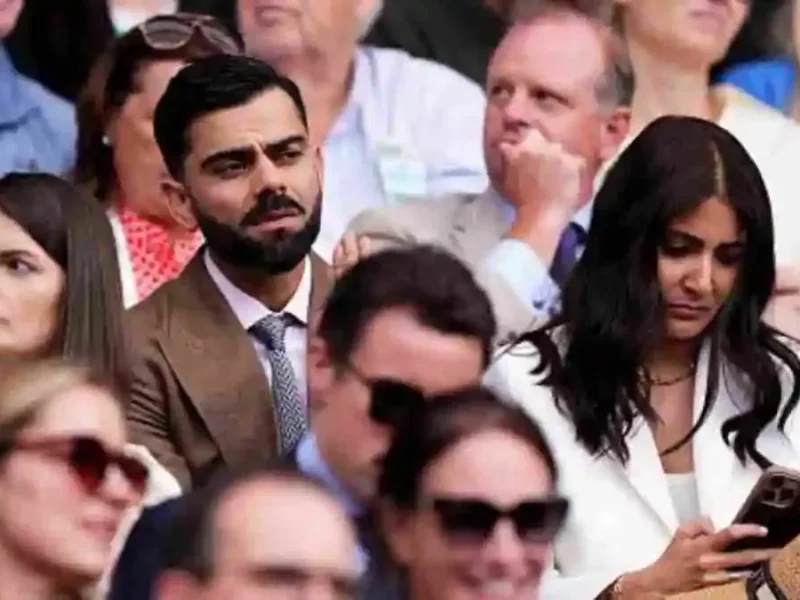
Two Indian Projects Among Finalists For Prince William’s Earthshot Prize
BOSTON, MA (IANS) – A floral waste project which converts flowers dispersed into the river Ganga into sustainable leather called Fleather and a greenhouse-in-a-box solution for small farmers are among this year’s finalists from India for Prince William’s Earthshot Prize, dubbed the Eco Oscars.
Phool and Kheyti are among 15 worldwide projects in the running to receive a 1 million pounds award at the second annual Earthshot Prize awards ceremony next month.
The two Indian finalists follow last year’s winning project from Delhi – Vidyut Mohan led Takachar, which won the prize in the “Clean our Air” category for its cheap technology innovation to convert crop residues into sellable bio-products.
“The innovators, leaders, and visionaries that make up our 2022 Earthshot finalists prove there are many reasons to be optimistic about the future of our planet,” said Prince William on November 3. “They are directing their time, energy, and talent towards bold solutions with the power to not only solve our planet’s greatest environmental challenges, but to create healthier, more prosperous, and more sustainable communities for generations to come,” he said.
Phool was born in UP soon after the festival of Makar Sankranti in 2015 when Founder and CEO Ankit Agarwal saw local temples dumping used flowers into the water, their pesticides coating, poisoning the Ganga. “We began life with a simple idea: to clean up India’s holiest river. In the process, we’ve discovered a material growing on our factory floor that could one day replace animal leather for good. Sometimes ground-breaking ideas come from unlikely situations, and we want to thank the Earthshot Prize for recognizing ours,” said Agarwal.
At first, Phool collected the floral waste and turned it into incense sticks. As they did, a thick mat-like substance began to grow over the unused fibers lying on their factory floor. This mat, they realized, could be turned into a sustainable alternative to environmentally damaging animal and plastic leather – now called the new material Feather. The company today employs over 163 women “flower cyclers” from the Dalit community to collect waste flowers and in time, they hope to employ 5,000.
Kheyti Co-founder and CEO Kaushik Kappagantulu launched his Telangana startup to help some of India’s nearly 100 million small-hold farmers among the poorest people on the planet and the most affected by climate change. Kheyti’s Greenhouse-in-a-Box offers shelter from unpredictable elements and destructive pests and the startup also trains and supports farmers to ensure their greenhouse is as effective as possible.
“The world depends on its small-hold farmers and yet their lives are amongst the hardest on earth. Our Greenhouse-in-a-Box is empowering farmers in India today. The steps we have already taken at Kheyti are now building to change farmers’ lives at scale,” said Kappagantulu, who has been shortlisted in the “Protect and Restore Nature” category.
Other finalists include the London start-up Notpla Hard Material, which makes packaging from seaweed and plants as an alternative to single-use plastic. The City of Amsterdam Circular Economy group, which wants to see nothing wasted and everything recycled in the Netherland’s capital by 2050. Mikuru Clean Stoves, from Kenya, which provides cleaner burning stoves to reduce unhealthy indoor pollution and a safer way to cook.
The prize takes inspiration from President John F. Kennedy’s ‘Moonshot,’ which united millions of people around an organizing goal to put man on the moon and catalyzed the development of new technology in the 1960s.
Prince William said, “I am so excited to celebrate these 15 finalists and see the five Winners of The Earthshot Prize announced in Boston — the hometown of President John F. Kennedy, who shared The Earthshot Prize’s belief that seemingly impossible goals are within reach if we only harness the limitless power of innovation, human ingenuity, and urgent optimism.”
The Earthshot Prize is centered around five ‘Earth shots’ — simple, ambitious, and aspirational goals defining the world we wish to build for future generations.




